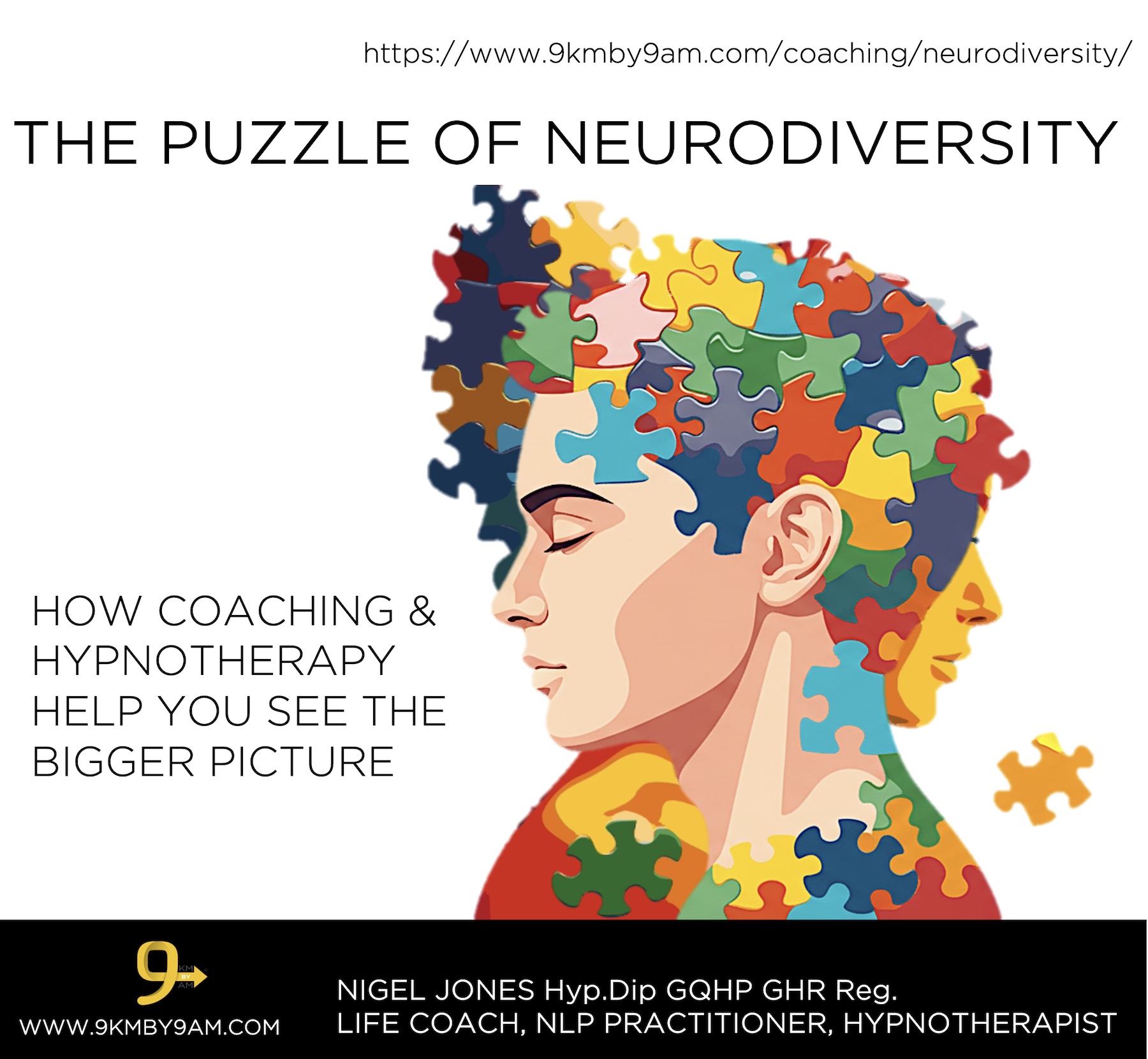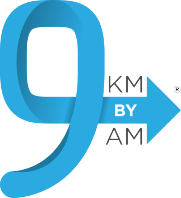THE PUZZLE OF NEURODIVERSITY
HOW COACHING AND HYPNOTHERAPY HELP YOU SEE THE BIGGER PICTURE
Diagnoses of ADHD and autism have risen sharply in recent years — in fact, studies show a 787% increase in diagnoses between 1998 and 2018, and ADHD was the second-most viewed condition on the NHS website in 2023. With awareness and demand at an all-time high, many people are seeking new forms of support that help the pieces click into place.
That’s why I’ve expanded my practice to combine coaching and hypnotherapy, so neurodivergent clients can regulate emotions, focus their energy, and harness their strengths — without forcing themselves into a one-size-fits-all model. My approach blends practical executive-function tools with mind–body techniques to help change stick.
NEURODIVERSITY IN THE UK – AT A GLANCE
| Condition | Est. Prevalence (UK) | Approximate Numbers |
| Autism Spectrum Condition (ASC/ASD) | 1–2% | 1 million people; 140,000 school-age children |
| Asperger’s (part of ASC) | Included in ASC | No longer reported separately; often ASD Level 1 |
| ADHD | 4.4% | 2.5 million in England (741,000 children & young people, 1.6m adults 25+) |
| Dyslexia | 10% | 6.3 million, with ~4% severe |
| Dyspraxia (DCD) | 5–6% (children) | 1 in 20 meet criteria |
| Dyscalculia | 6% | Often under-identified; affects ~1 in 20 people |
| Tourette’s Syndrome | 1% | 500,000 people (age 5+) |
QUICK GUIDE TO KEY NEURODIVERGENT CONDITIONS
Autism Spectrum Condition (ASC/ASD): Developmental differences in communication, sensory processing, and social interaction. Strengths: pattern recognition, deep focus, innovation.
Asperger’s Syndrome: Historically used for autistic individuals with no language delay and average/above-average intelligence. Strengths: analytical thinking, expertise.
ADHD: Variations in attention, impulsivity, and hyperactivity. Strengths: creativity, energy, problem-solving.
Dyslexia: Affects reading and spelling, but strengths include big-picture thinking and creativity.
Dyspraxia (DCD): Affects coordination and sequencing. Strengths: empathy, verbal skills, creativity.
Dyscalculia: Difficulty with numbers and calculations. Strengths: creativity, verbal reasoning.
Tourette’s Syndrome: Involuntary tics (movements/sounds). Strengths: resilience, humour, creativity.
HOW COACHING & HYPNOTHERAPY HELP
Emotional regulation: lower anxiety/overwhelm; build calm under pressure.
Focus & follow-through: mental rehearsal, anchoring, and cueing to start/finish tasks.
Belief shifts: release “failure feedback” and install empowering self-talk.
Executive function tools: time-boxing, visual timers, body-doubling, environment design.
Sleep & recovery: hypnotherapy protocols for better rest and sustainable energy.
THE WORKPLACE
It’s estimated that 1 in 4 employees is neurodivergent. Yet most workplaces are still structured for neurotypical ways of thinking and working. This creates hidden barriers for brilliant minds who may struggle with time-blindness, sensory overload, or executive function challenges.
Coaches with neurodiversity training can play a vital role here — helping individuals unlock their strengths while also guiding organisations to make adjustments that empower rather than exclude.
THE HUMAN STORY
In my practice, I’m seeing an increasing number of clients with ADHD and autistic traits. They often arrive with very real challenges — procrastination, masking fatigue, rejection sensitivity, anxiety from sensory overload. But when given the right coaching environment, they also reveal their unique strengths: creativity, honesty, hyperfocus, innovative thinking, and resilience.
Coaching in this space isn’t one-size-fits-all. It means creating structure without rigidity, using NLP and hypnotherapy tools for emotional regulation, and allowing space for clients to unmask and be authentically themselves.
For me, this isn’t just another qualification — it’s a commitment to inclusivity and to recognising that different doesn’t mean less. By honouring neurodiversity, coaching can help individuals and workplaces alike move from surviving to thriving.
NEXT STEP
If you’d like to explore how coaching can support you, your team, or your organisation in embracing neurodiversity, I’d love to connect. Explore coaching and hypnotherapy for ADHD, autism and more: 9kmby9am.com/coaching/neurodiversity
FREE DOWNLOAD
Try the Zing Method™ – a quick, physical activity designed especially for people on the neurodiversity spectrum (though it can benefit anyone).
Download here
HAVE A GREAT DAY…
Your Life Coach
You can find out more about how to make positive changes in my life coaching and NLP sessions and courses as well as my book, Walking Back To Happiness: The Secret To Alcohol-Free Living & Well-Being, which shows how you can massively improve your mental and physical well-being. Packed with over 70 exercises or steps you can take to improve your well-being and happiness, it’s a blueprint of how to live your best life! https://www.amazon.co.uk/Nigel-Jones/e/B0B7RP6LH6/
LINKS
Website – https://www.9kmby9am.com/
Podcasts – https://www.9kmby9am.com/about-nigel/podcasts/
Testimonials – https://www.9kmby9am.com/coaching/coaching-testimonials/
Coaching – https://www.9kmby9am.com/coaching/
My Book – https://www.amazon.co.uk/dp/B0DLPH36R3/
Professional Bodies https://general-hypnotherapy-register.com/nigel-jones/ & https://anlp.org/members/nigel-jones
Newsletter – https://www.9kmby9am.com/latest-news/newsletter/
Back to latest articles




